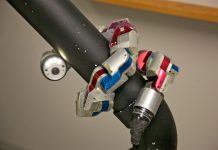Researchers at Stanford University published a new paper detailing a study that involves using predictive artificial intelligence for medical purposes. Results show that the AI can already predict with 90% accuracy when terminally ill patients are likely to die.
Predicting the time of a person’s death sounds like something you might read about in a science fiction book, not in a scientific article. And yet, that’s exactly the topic of a recent paper published by a team of researchers from Stanford University. To make matters potentially even eerier, the scientists are saying that they are able to use artificial intelligence in order to predict someone’s death with 90% accuracy. The idea isn’t necessarily new but this is likely one of the most conclusive experiments of its kind and the resulting data could be used in the future for a wide variety of applications.
As it stands, the primary goal of the experiment was to help dying patients that require what’s known as end-of-life care. This is a special type of healthcare aimed at improving and possibly somewhat extending the life of terminally ill patients. End-of-life care can sometimes be a little tricky as doctors need to figure out how long a patient has to live before giving them priority treatment.
While in many cases doctors can already predict to some degree when a patient may die, there have been many instances when patients beat the odds and managed to live a lot longer than expected. That is obviously the ideal scenario but in order to make sure that end-of-life care is only given under the right circumstances, a high degree of accuracy is key. This is where the artificial intelligence comes in.
The study involved analyzing the medical records of around 160,000 patients from Stanford and Lucile Packard’s Children Hospital by using the artificial intelligence. The AI was then tasked with predicting which of the patients would die during the next three to twelve months and managed to do so correctly in 90% of the cases. Furthermore, 95% of the patients who were considered to be at lower risk of dying, according to the AI, ended up living longer than the aforementioned period.
Despite the strong results, this was actually just the initial test run and researchers believe that they can make the system even more accurate as more data is collected. But regardless of how accurate the AI might become, Stanford scientists aren’t looking to dismiss doctor predictions and rely entirely on the system. Instead, Stanford’s Kenneth Jung suggests the system be used to help doctors by giving them additional data and letting them make the final decision. Not only would this be a more reliable way of doing things, but it would also put people at ease given that artificial intelligence continues to be a fairly controversial topic.



















